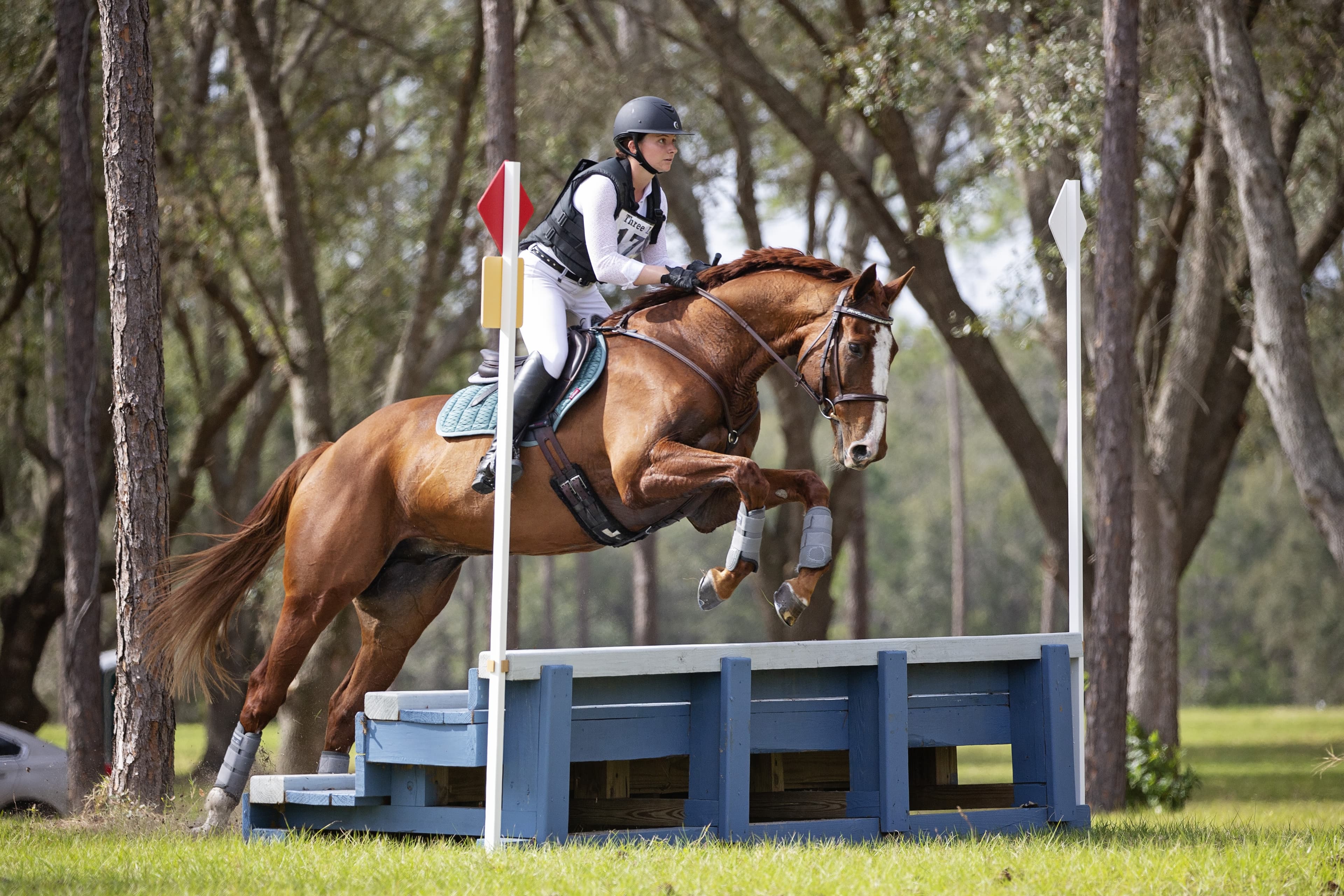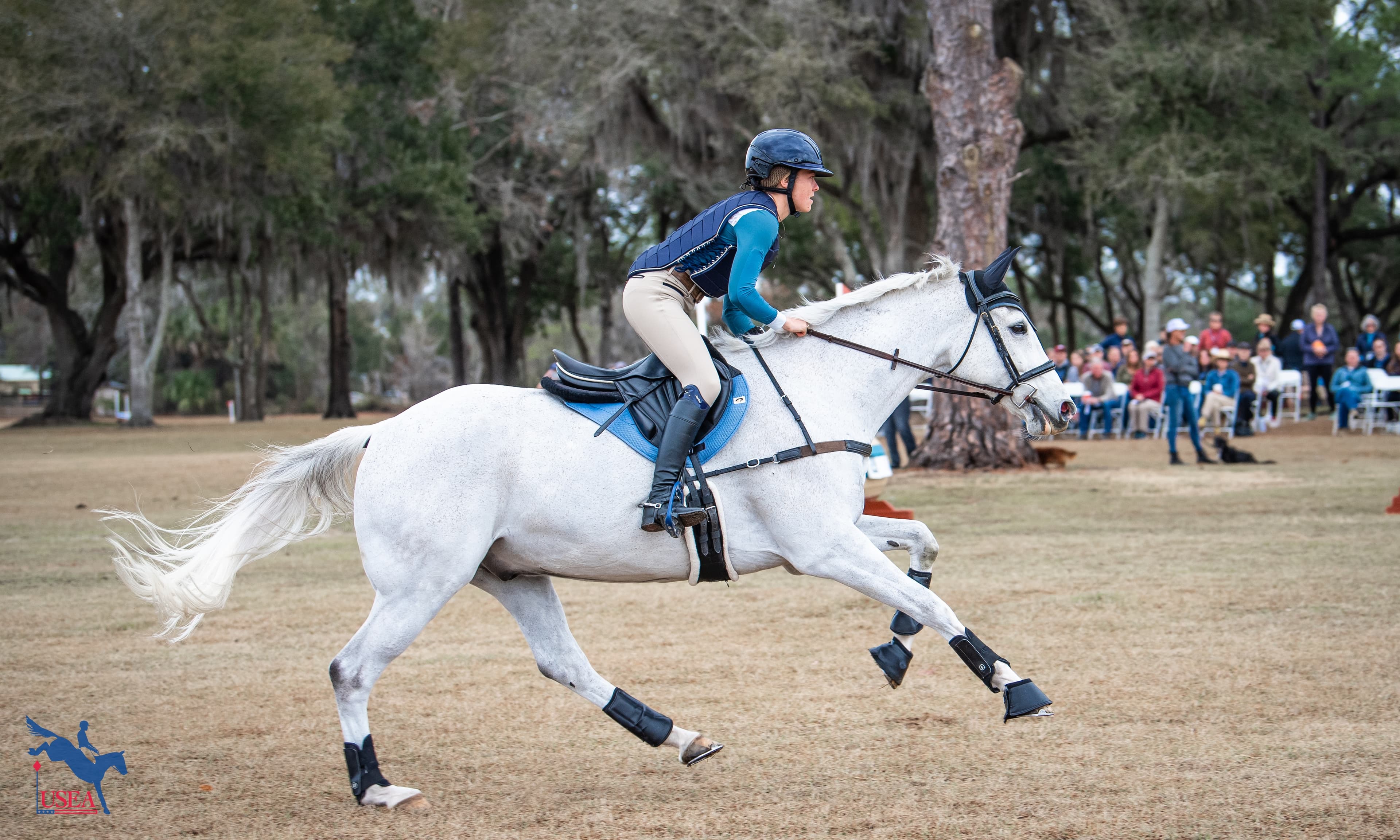USEA Events A-Z: Heart of the Carolinas Three-Day Event and Horse Trials
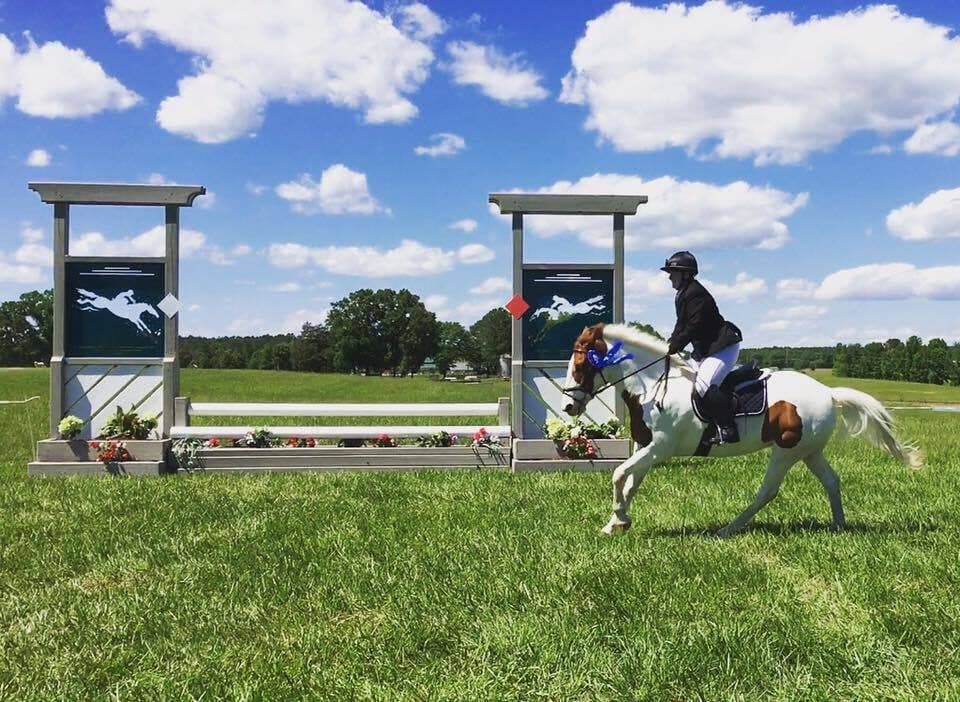
Every year on the first weekend in May, Southern 8ths Farm in Chesterfield, South Carolina (Area III) hosts the Heart of the Carolinas (HOTC) Three-Day Event and Horse Trials. Heart of the Carolinas offers USEA Classic Series divisions for Beginner Novice through Preliminary levels and horse trials divisions for the same, including the new Modified level.
The 1,300 acres of rolling hills and woodlands on the border of North and South Carolina where Brad Turley and Pati Martin’s Southern 8ths Farm sits today has a rich equestrian history stretching back to the 1800s. The land was originally the homestead and cemetery of the Burch family, who raised and trained Thoroughbred racehorses. William P. Burch, who served in the Confederate States Army in the Civil War under Lieutenant General Wade Hampton III, and his son, Preston M. Burch, and grandson, J. Elliott Burch, were all inducted into the National Museum Racing Hall of Fame.
Turley and Martin purchased the property with the intention of housing and riding their own horses on the land, but after Turley’s experience competing in a long format event at the Green Mountain Horse Association Classic Three-Day, he was inspired to start the Heart of the Carolinas Three-Day Event. “It had such a profound impact on his relationship with his horse and his appreciation of the sport that he decided to build a long format venue to enable him to share those feelings with other riders,” explained HOTC Organizer Cindy Deporter.
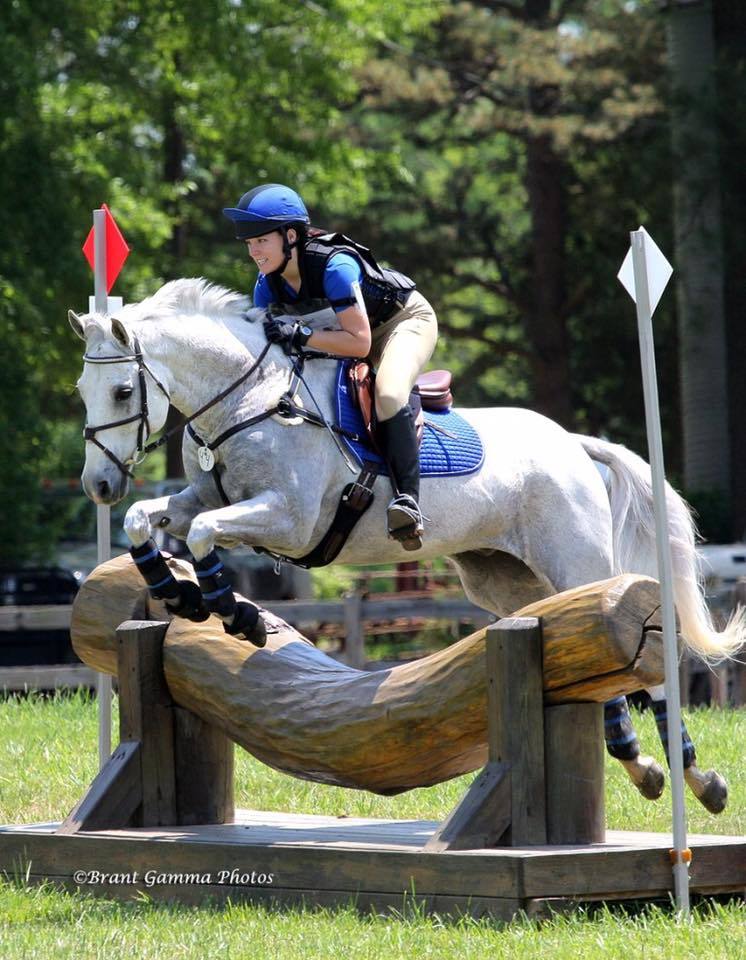
Southern 8ths Farm hosted the first Heart of the Carolinas Three-Day Event in 2011 and at the time only offered Classic Three-Day divisions for Training, Novice, and Beginner Novice. In 2014, the event began also offering horse trials divisions to help support the expense of running the Classic Three-Days. Last year, HOTC began offering the Modified level, and this year became the only event to offer all four Classic Three-Day divisions: Preliminary, Training, Novice, and Beginner Novice. “What’s great is that the event has been growing every year,” said Leslie Threlkeld, co-organizer alongside Deporter and Erin Kimmer. “We’ve offered a number of different divisions over the years. We did the coaches allowed divisions for a couple of years, which was so much fun, and we’ve been adding [divisions] every year.”
“For a long time we were the only ones offering the Beginner Novice Three-Day,” commented Threlkeld, “and it’s so exciting to see so many other events adding Beginner Novice Three-Days to their division listings. At our event they don’t jump on steeplechase – it’s just a pace test – but they still get to do the same roads and tracks, they still get to do the horse inspections, and they just love it! They’re so enthusiastic, it’s so great, and any kind of horse can go do it which is the other wonderful thing about it. It’s such an awesome mix of riders and horses that come and do the Three-Day and they all get something positive out of it. They all walk away better for it.”
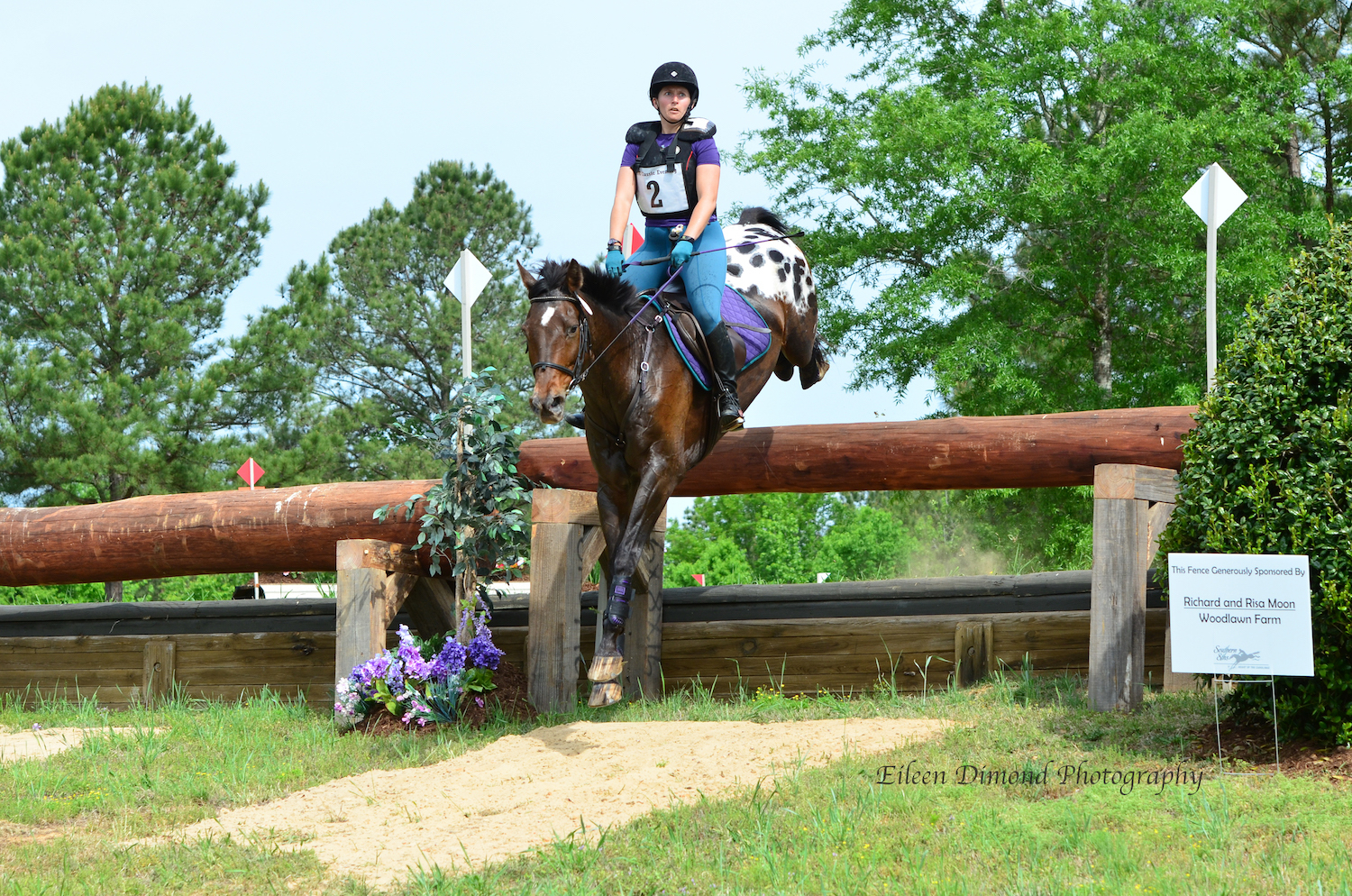
“I think a lot of the people, at least a lot of the people who come and compete at our event, they do the Three-Day one time and they come back year after year,” said Threlkeld. “It’s such a great part of your progression through the levels, especially for amateurs and young horses. You find out a lot about yourself and a lot about your horse.”
It takes a village to put on any event, and Heart of the Carolinas is no different, with a strong team working hard behind the scenes to make the event possible for competitors. “Brad has provided an incredible venue, a beautiful space . . . he’s really the one who makes it all happen,” said Threlkeld. “He does nearly all of the legwork preparing the facility; it’s already a beautiful space but he and his team really take it to the next level. We wouldn’t have the event if it weren’t for Brad and he’s so enthusiastic about the long format and what it provides for people.”
“Cindy Deporter is the captain of the ship,” continued Threlkeld. “She’s an incredible, hard-working, dedicated individual who makes everything as wonderful as she can. She’s so upbeat and enthusiastic and she’s a great person for all the work that she does for this event.”
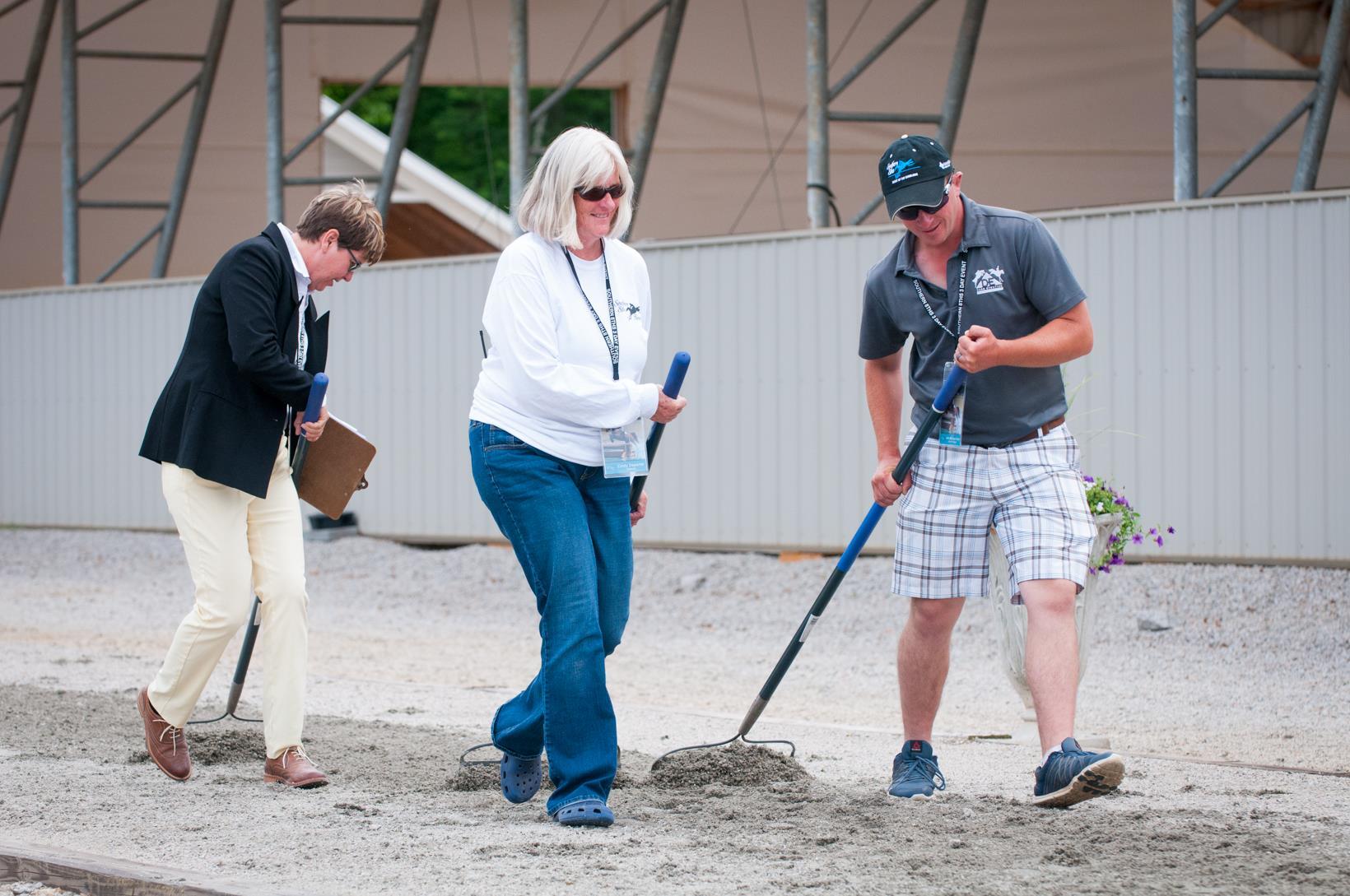
“[Erin Kimmer] started last year as a co-organizer because she is in the LOC (licensed official certification) training program and she needed to have organizer experience,” Deporter continued. “This year she flagged and un-flagged the courses; that would be a total of nine courses. She remarked she never knew it was as challenging as it was; flagging is one of those little areas that is really tough and not known until you have to do it! She also worked on sponsorship and was absolutely incredible as that meant she had to put boots on the ground and make visits to lots of different businesses.”
“Melissa Beasley Rundt is our Hospitality Coordinator; she feeds all the officials and volunteers. If it were not for her, none of us would eat all week,” Threlkeld shared. This year, HOTC’s Volunteer Coordinator had an emergency and Rundt stepped into the role at the last minute. “She is totally dedicated to HOTC and she brings a smile and a lot of energy to the event,” said Deporter. Rundt’s son Brandon also comes every year to lend a hand, as does Janet Dillon and Threlked’s mother, Lenore Threlkeld, who is affectionately known as “Mama Threlkeld” at HOTC.
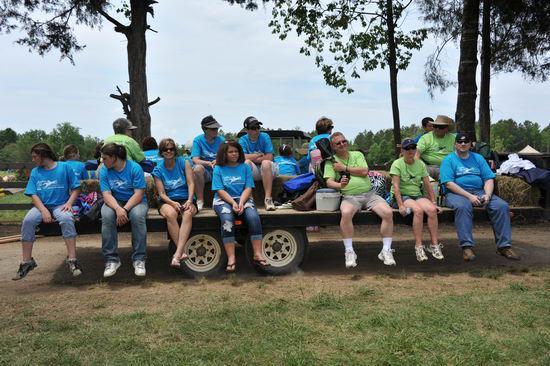
Cindy Wood is the Stabling Coordinator at HOTC and according to Threlked, “she makes sure [competitors] have all the information that they need.” Deporter added, “I don’t have to worry about what is going on in stabling as she always has it handled and she always knows what is happening in the barn area.”
Rick Dunkerton, who manages the scoring, is another HOTC team member who has been on board since the beginning. “I never have to worry about the entries or collecting the money or doing any of those types of bookkeeping problems, he pretty much handles it all,” said Deporter. “The competitors love him because he is helpful, knowledgeable, and efficient.”
Erica Pawlak is the Sponsorship Coordinator and undertakes the task of securing support from people and businesses to help make the event possible and makes sure the event can offer such excellent prizes. “This year everyone in the three-day through eighth place got prizes,” explained Threlkeld. “She is the person that goes out and talks to people and companies and gets these prizes and organizes them. It’s always nice to get a ribbon but it’s really nice to go home with stuff!”
“We have some remarkable volunteers that come back year after year,” said Threlkeld. Tony Astmann, for example, is a good friend of Turley’s who lives in Connecticut but comes down to volunteer, both at the Heart of the Carolinas recognized event as well as fundraising events like the hunter paces hosted at the farm. “He’s the go-to guy for almost anything during the week, he helps us out so much,” Threlkeld explained. “This year he was the ‘ICE’ man,” Deporter added. “His SUV was filled with coolers as we had to replenish the ice in the water troughs at the ten-minute box this year! It was a ‘cool job’ so to speak, his own words.”
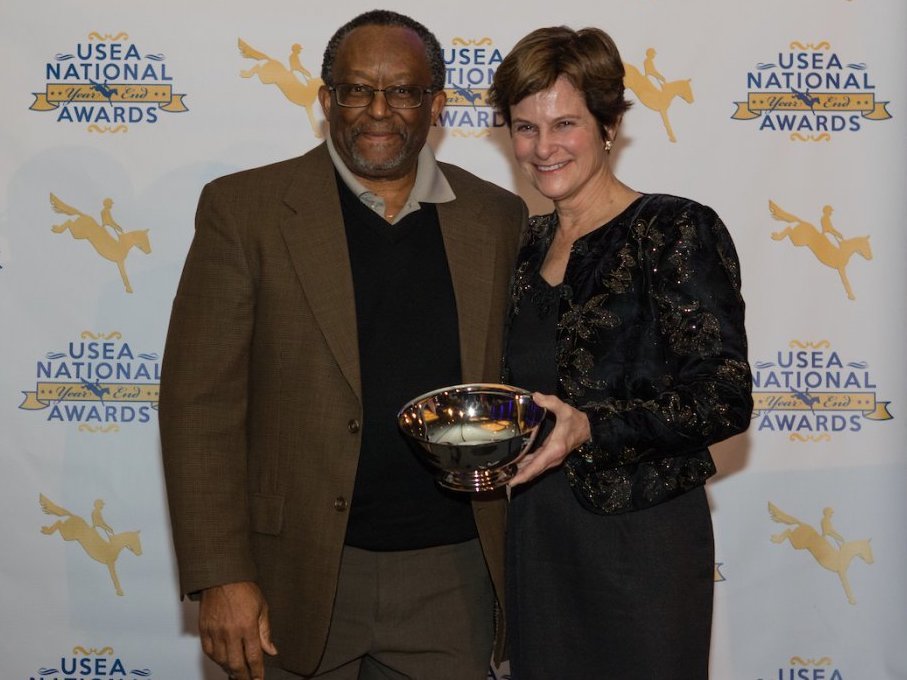
Ed Madden, another friend of Turley’s, has absolutely no experience with horses but comes every year to volunteer as Safety Coordinator all the same. Last year, Madden was awarded the Governor’s Cup, which honors those individuals who labor tirelessly behind the scenes at the many jobs associated with running the sport and whose services have contributed significantly to eventing.
The Heart of the Carolinas has several couples who come down and camp at the event to volunteer every year, including Art and Diane Bird and Van and Susan Firth. “Our volunteers are just phenomenal,” stated Threlkeld. “They come and stay for the week and they have such a great time.” On the morning of endurance day, the All Veterans Parachute Team literally 'jumps in' and then stays to volunteer, providing a unique link between the competition and the sport's military history.
“We have a very dedicated, very incredible group of people who continue to come back and support us and continue to be really excited about the competition,” said Threlkeld. “When you’re planning an event, when you’re an organizer, there’s so much to do leading up to it and you get there and you’re like, ‘it’s totally worth it. This is the best week of the year.’ We love what we do, it’s just phenomenal.”
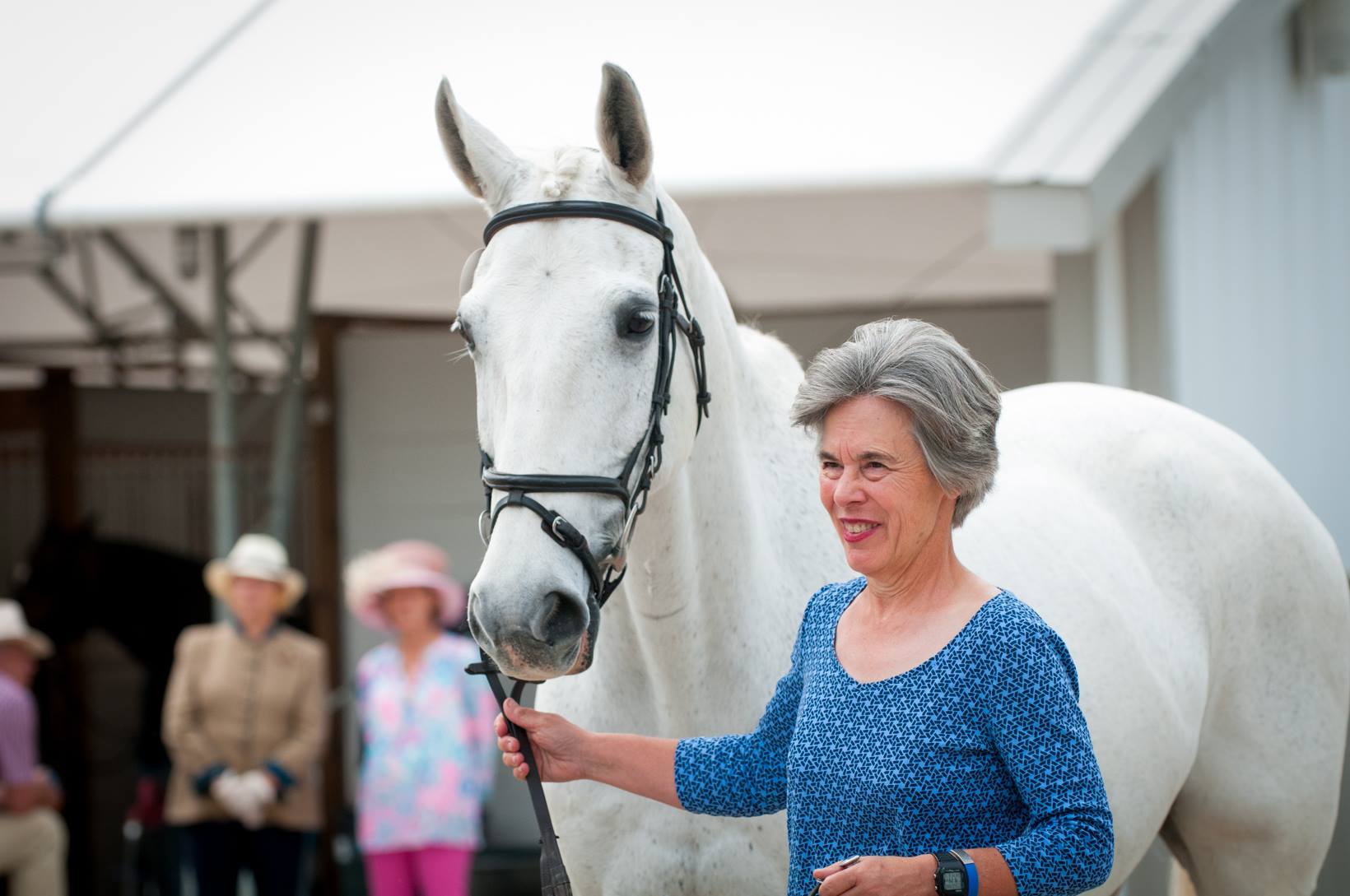
One of the special aspects of a Classic Three-Day event is the educational opportunities available to competitors, covering everything from horse inspection and steeplechase practice to vet box demos and presentations from professionals. The Equine Management Training Center comes every year to Heart of the Carolinas to provide a clinic about how to care for your horse in the 10-minute box and the final vet box. USEA President Carol Kozlowski serves as the lead clinician, coordinating the seminars and making sure that riders have all the information and knowledge they need to navigate through every phase of a long format competition.
“Training-wise, it’s such a good stepping stone, but when it comes to the education that you receive from doing a long format, it helps you in the rest of your riding career as you continue moving up the levels," commented Threlkeld. "You learn more about your horse, you learn about how he develops his fitness, what his TPR [temperature, pulse, respiration] is. Sometimes, you learn what it’s like to ride a tired horse. You learn how to care for your horse after cross-country . . . you learn so much from a horsemanship perspective that you can carry forward.”
Heart of the Carolinas awards the Jim Baker Memorial Horsemanship Award to the rider that displays exceptional sportsmanship during the competition, as well as a Best Conditioned Award, chosen from the four Three-Day divisions, and a Best Turned Out Award, one for each Three-Day division.
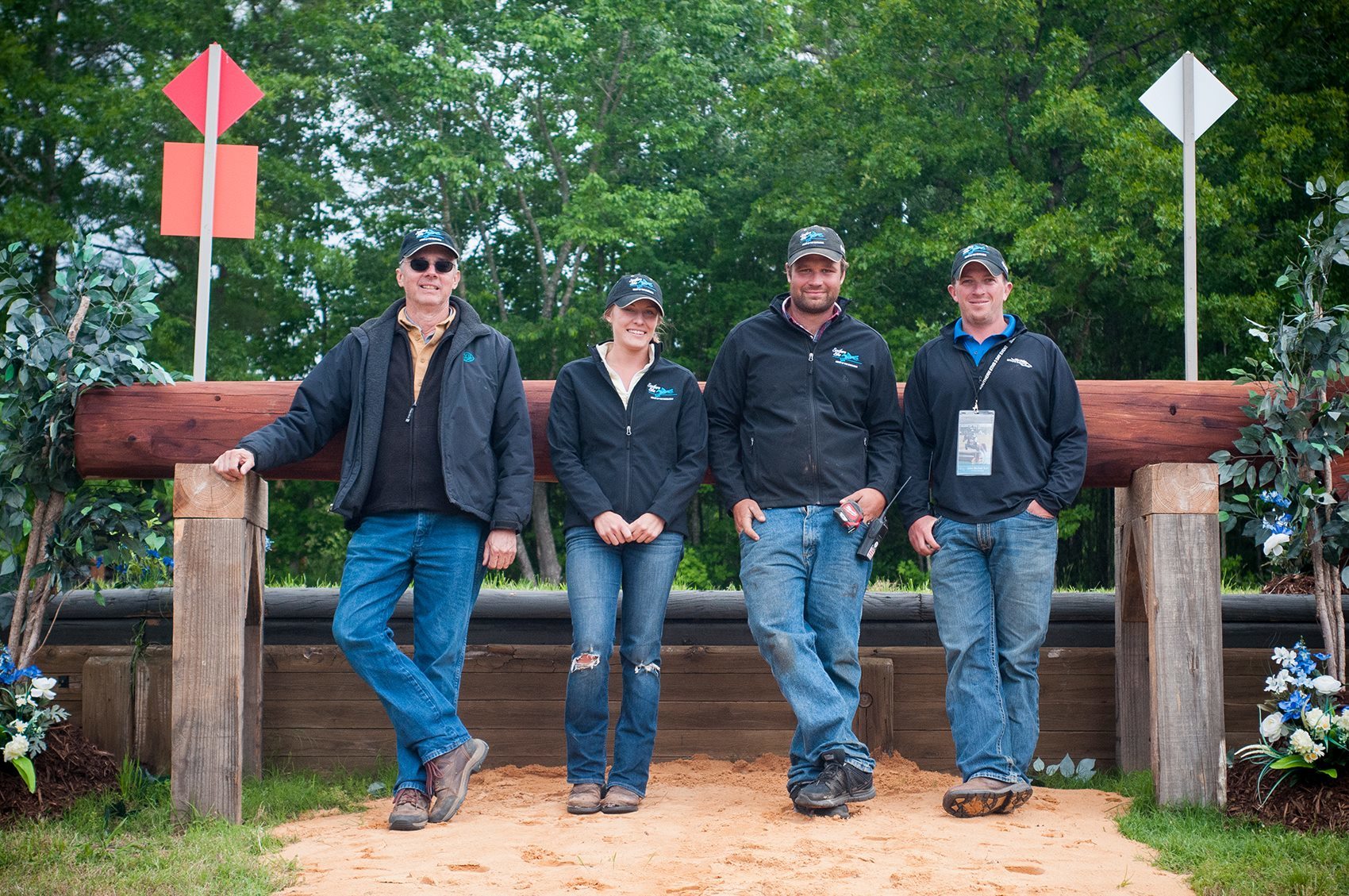
With 1,300 acres of land to work with, the team behind Heart of the Carolinas has been excited about the possibilities for expansion, especially on the cross-country course. The property currently has 38 permanent stalls, 11 turnout paddocks, an indoor arena and a large sand pad for dressage, as well as 19 campsites and a fire pit. Turley is currently in the process of building showers, men’s and women’s permanent bathrooms, and a classroom. When John Michael Durr came on as course designer prior to the 2017 event, he immediately looked to take advantage of the vast amount of space available for the cross-country course. The course winds in and out of the woods before opening up onto the fields where horses can really move across the ground. The property also has an incredible trail system for the roads and tracks phases with groomed footing that Turley himself aerates and drags before the competition.
Because Heart of the Carolinas added Preliminary level to their event this year, Captain Mark Phillips came out to perform an inspection of the course. “When he came out to inspect our first Preliminary course, he indicated it was one of the loveliest venues he had seen and that the potential was enormous,” recalled Deporter. “Yes, we are a little out in the wilds, but the place is gorgeous and is truly a lovely place to have an event.”
Chris Barnard joined the HOTC team last year to design the show jumping courses for Heart of the Carolinas, which are held on grass. “It adds a pretty cool extra element and a little extra challenge because it’s a grass arena but it’s not completely level,” commented Threlkeld. “Chris does an incredible job of designing the course.”
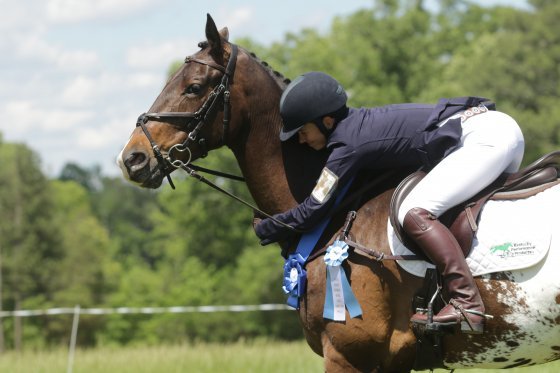
Both Deporter and Threlkeld agreed that it’s the people at Heart of the Carolinas – the staff, the volunteers, and the competitors – that set HOTC apart. “I have had so many people say to me, ‘this is the way eventing use to be,’” said Deporter. “People helping people, people being friendly, all the staff have smiles on their faces and everyone seems to be enjoying what they are doing . . . Everyone has their own niche, they all know their jobs they are all enthusiastic and positive. The competitors all seem really grateful and sometimes stunned at the detail that has gone into making the competition one we think is one of the best in the country. Brad’s dream was to create a competition that was for the adult amateur – that I think we have done. I believe it is a destination event!”
“The riders we see every year are like family,” elaborated Threlkeld. “It’s so good to have them continue to support the competition, support us, and support the long format event. Even if, for whatever reason, they can’t compete in the Three-Day that year, they come and they do the horse trials. It’s a great big happy family and I think that’s unique . . . [The people] create this special feeling and really good energy and aura about the place. The people make it special.”
The USEA is profiling the history behind all USEA recognized events in the USEA Events A-Z series.


